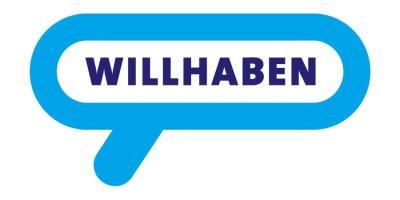Protect minors, support European works and more flexibility for providers: Those are the aims of the reform of the Audiovisual Media Services Directive.
The new set of rules installs national regulatory authorities which will function independently. The innovations are mostly based on existing law and will adapt it to modern circumstances. For example: Many Member States already have quotas for the amount of European works provided by video-on-demand-services. With the reform, an European-wide minimum percentage of 20% was determined.
Video-sharing platforms
The rules apply to platforms "where the principal purpose of the service (or a dissociable section thereof) is devoted to providing programmes and user-generated videos to the general public, in order to inform, entertain or educate" (EU Commission, press release). Social networks like Facebook and news sites who occasionally post videos are excepted.
"The country of origin principle"
The providers have to adapt to the national law of the country where they are established. Austrian services don't have to comply to Austrian law, not to 28 different rules.
Furthermore, small providers are excepted from several rules if the fulfillment would lead to disproportionate expenses.
Protection of minors
Online content needs to be regulated in a way that no one is harmed by its consumption. A priority is the protection of minors, but also the dissemination of hate speech and incitement to hatred has to be stopped.
The Commission proposed a set of basic rules for all providers. Member States can take further action to be controlled by national regulatory authorities.
Advertisment:
The Commission is willing to give providers (TV broadcasters, vod services) more flexibility and at the same wants to strengthen consumer protection. Minors should be protected against harmful content like pornography but also advertisments for unhealthy food and alcohol.
The existing cap of 20% advertisments between 7 a.m. and 11 p.m. will continue to exist, but the broadcasters can decide when they show ads as the maximum of 12 minutes per hour will be dropped. TV films, cinematographic works and news programmes can be interrupted only once every 20 minutes.
The Commission wants to discuss and develop common rules with video-sharing platforms in order to strenghten the protection of minors online. The aim is to agree on a code of conduct, i.e. with age verification or pin codes, to avoid that children can access harmful content. Furthermore, the content description should be reformed and give viewers with texts, warnings and symbols all the information they need to decide which content they watch and show their kids.
European works
The Commission proposed a quota policy in order to raise the percentage of European works in on-demand services. As mentioned above, many Member States already have such quotas, but those vary considerably (10-60%). With the EU-wide regulation, all consumers should get access to European movies.
The minimum amount for TV broadcasters is 50% and in the future, also video-on-demand services have to offer at least 20% of European works in their catalogues. Those should be presented prominently. This rules do not apply to small providers.
The next steps
The new text of the Audiovisual Media Services Directive has to be adopted by the European Parliament and the Council of the EU. After their consent, the new rules have to be transposed into national law within a year. Until then, the existing text is valid.
Find more information here.










